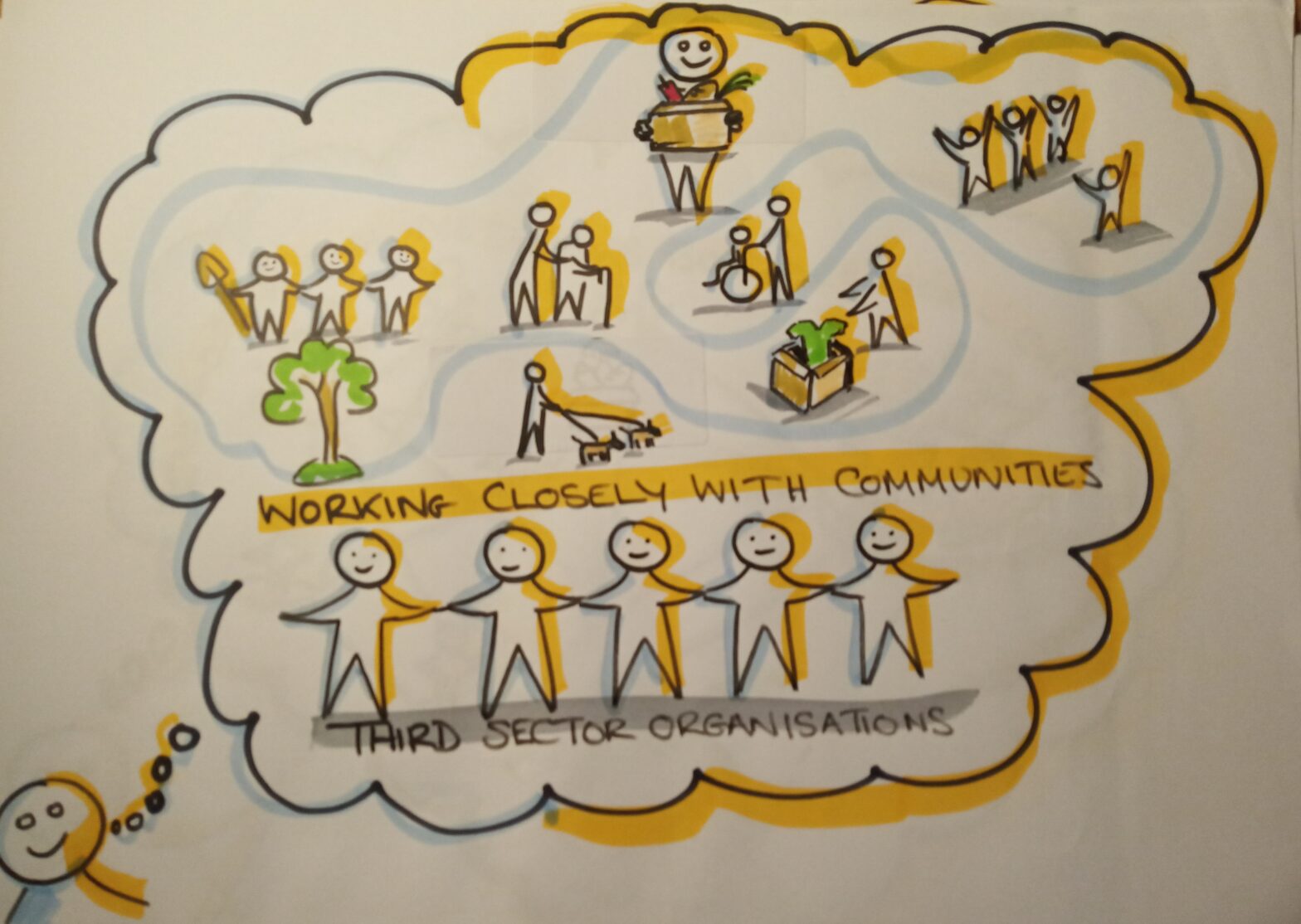“The future of every community lies in capturing the passion, imagination, and resources of its people.”
Ernesto Sirolli
The need for identity, belonging and community can override the desire for freedom and autonomy. There is a degree of comfort in Hobbes’ model. (see earlier blog Hobbes’ Principles – not a Hobson’s Choice)
We human beings are social animals, there is an inherent need to fit in and conform. Even when the status quo is not working to break from the norm takes real courage of conviction, vision and determination…and hard work.
This is where we need to capture hearts and minds and encourage communities to use their imagination to see positive change and that we can build back better.
For five years, since the Community Empowerment Act (2015), Community Empowerment has been there for the taking but we have yet to see huge progress in the adoption of transformational approaches.
We have previous considered the challenges in shifting the balance of power and its nature to reassert itself and that empowerment itself is open to being manipulated to fit an agenda, but I see the greatest hurdle coming from the answers to the questions asking:
“How much do our communities want to be empowered?“
“Do our communities see themselves as ‘citizens’ responsible for creating a better place or still ‘consumers’ who pay their taxes and expect services to be delivered by the state?“
and,
“Are those community members, keen to embrace the opportunities and aspirations offered through community empowerment ready, able and equipped to do so? Is there robust support out there? Is that support sustainably funded and supported?“
We have many amazing, dynamic community activists responsible for great local projects. We often find that in every town, village and settlement a small group of willing volunteers taking on an array of activities for community benefit. However, this tends to be the same volunteers all of the time which eventually leads to volunteer fatigue and a sudden halt to activities…this is usually quite cyclic, though and after a hiatus a new group will pick up the baton until they are spent and so on…
These volunteers are usually self-directed perhaps performing wider consultation when they are seeking evidence of need for a funding application, but ultimately quite self-contained. They are normally also a very small fraction of the population of their community.
How do we take that seismic leap from running a coffee morning or walking group to making decisions on how we spend 1% of the Local Authority budget or take on the responsibility of creating a strong business case for taking on an asset and running it successfully?
As I have said previously there are some terrific examples of good practice and to take nothing away from this great work but we are not seeing this on a large scale.
The challenges start from how our communities have changed in behaviour over the years. Many towns and smaller settlements are increasingly becoming dormitory towns. No longer are communities built around industry, fishing, mills, mines, factories…employment is accessed in larger settlements cities often a good hour away from home. Add two hours onto a working day and not many folk are going to be keen to throw themselves into community life unless they see a direct personal benefit. Parents volunteering with a sports club for as long as their children are members or residents going along to the community council because there is a planning application they do or do not want to see supported.
This is reasonable and totally understandable but herein lies the problem with trying to build the social capital needed. People make the decision to volunteer and get involved for a variety of reasons and if we consider the factors which influence decision making in general i.e. past experiences, cognitive biases, escalation of commitment and sunk outcomes, individual differences such as age, gender, socioeconomic status and personal relevance there is so much groundwork needed to build a foundation within communities that will create a climate in which communities are ready to grasp empowerment and be agents of positive change.

